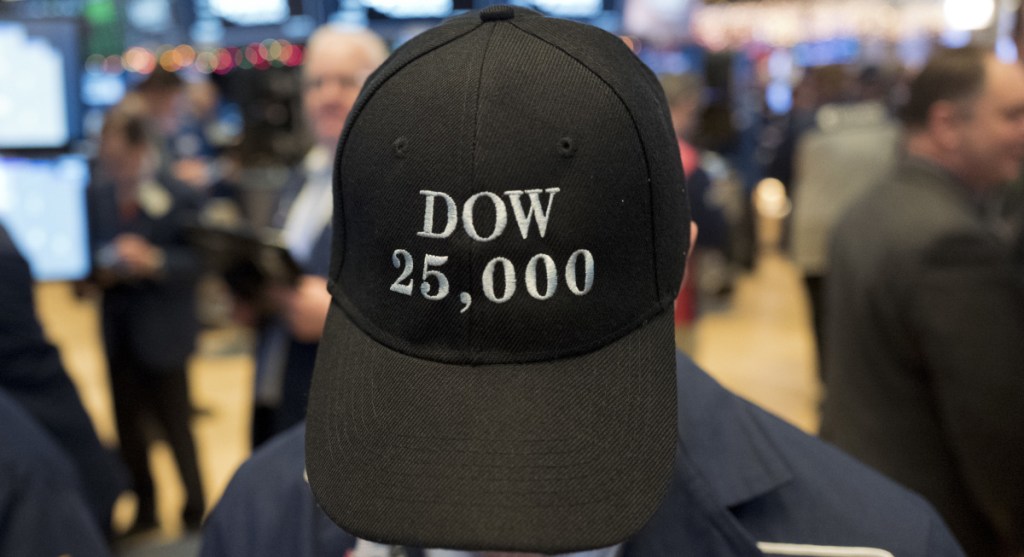On Wednesday the stock market is poised to break a record: the longest bull market rally in U.S. trading history. It’s been more than nine years and five months since the dark days of March 2009, when the S&P 500 Index hit bottom and began to climb. It’s still climbing. Since March 9, 2009, the S&P index is up about 320 percent.
While technical definitions of a bull market vary, and this year’s market has been bumpy, the big picture outlook for the economy is bright. That’s why Wall Street keeps betting on stocks. Unemployment is 3.9 percent. GDP growth hit 4.1 last quarter. Employers are investing in their businesses and consumers are spending. Happy days!
If one corporation is a proxy for the financial state of mind of the typical American, it might be Walmart. This recent comment from Walmart CEO Doug McMillon caught our attention because it was so optimistic: “Customers tell us that they feel better about the current health of the U.S. economy as well as their personal finances,” he said. “They’re more confident about their employment opportunities.”
There are plenty of reasons for the trifecta of strong economic growth, lots of hiring and a bull market for stocks. Certainly, Republican-led tax reform is helping. A major purpose was to reduce the tax burden on American corporations to bring tax rates more in line with foreign-based competitors. Another goal was to encourage more business investment. But that’s not all: The underlying state of U.S. businesses is healthy and profits are up. Some companies are raising prices on goods, which isn’t necessarily a bad thing. It’s part of being in a robust cycle. In the 12 months ending in June, U.S. workers saw their biggest wage growth since 2008, although we’d like to see incomes pop some more. Inflation remains in check.
We’ve seen some grumbling that part of Wall Street’s lift is due to corporations using their tax windfalls for the buyback of stocks, which boosts the value of outstanding shares. As if share repurchasing were a form of cheating. It’s not. Investors who gain proceeds from buybacks typically reinvest the money in other stocks. That is, companies with sufficient cash buy back their shares from shareholders, and that money gets reinvested in companies that need more capital. Those companies then can hire new workers or otherwise expand their businesses.
Fifty-four percent of Americans own stocks. Among the multitudes: millions of workers who are saving for a secure retirement with 401(k) and similar accounts.
Yet a bull market doesn’t benefit only shareholders. That faith in the future of private-sector companies helps drive economic growth — to the benefit of all Americans.
Editorial by the Chicago Tribune
Visit the Chicago Tribune at www.chicagotribune.com
Distributed by Tribune Content Agency, LLC.
Copy the Story LinkSend questions/comments to the editors.



Success. Please wait for the page to reload. If the page does not reload within 5 seconds, please refresh the page.
Enter your email and password to access comments.
Hi, to comment on stories you must . This profile is in addition to your subscription and website login.
Already have a commenting profile? .
Invalid username/password.
Please check your email to confirm and complete your registration.
Only subscribers are eligible to post comments. Please subscribe or login first for digital access. Here’s why.
Use the form below to reset your password. When you've submitted your account email, we will send an email with a reset code.